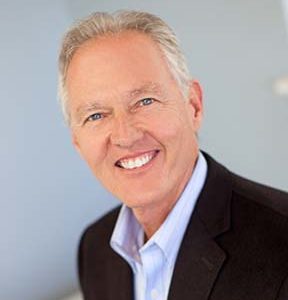
While leaders want to offer the comprehensive and flexible plans their people desire, many of them can’t risk the impact to their bottom line. Striking the magical balance may seem improbable.
However, there is a solution: The Kaiser Family Foundation reports that 82% of covered workers at large companies are enrolled in plans that either are partially or completely self-funded. Today, the model is gaining popularity among companies of all sizes, enabling small and mid-market companies to offer competitive benefits packages that give them an edge in recruiting and retaining top talent.
An uptick in self-funded plans began in 2013—the same time that key provisions of the Affordable Care Act took effect. Between 2013 and 2015, the percentage of small companies (fewer than 100 employees) offering at least one self-insured health plan rose to 14.2% from 13.3%, while midsized companies (100-499 employees) increased to 30.1% from 25.3%. It’s a gradual but steady climb that likely will continue as companies realize the cost-savings.
How self-funded healthcare plans work
Using a self-funded (also called self-insurance) model, employers pay health claims directly or through a third-party administrator (TPA). Many companies also purchase a complementary stop-loss insurance policy to limit their liability. Self-funded benefits can include medical, dental, vision, prescription medications or workers’ compensation. Costs vary from month-to-month depending on workers’ use of health services.
For employees, the health plan may look and operate the same. From the company’s standpoint, costs can be better controlled and administration streamlined with the following strategic plan design.
1. Offer care most employees need. Many of today’s traditional health insurance plans offer stripped-down benefits. A smart self-funded plan should include primary and injury care, rehabilitation and chiropractic care, labs, immunizations, generic medications and preventive services at little or no out-of-pocket cost. Other plans, including Minimum Essential Care coverage defined by the ACA, are heavy on diagnostics and light on treatment—MEC-only plans do not address employees’ ongoing medical needs.
2. Consider stop-loss insurance. To supplement a self-insured plan, companies can purchase stop-loss insurance to cover the most expensive healthcare—chronic illnesses, catastrophic diagnoses or accidents—and to ensure the business meets Minimum Value Plan requirements stipulated by the ACA.
3. Streamline care delivery. Companies may elect to hire a partner organization to manage the care delivery and logistics process, help employees navigate the system, and eliminate the waste, administration and overpricing rampant in today’s healthcare industry.
A healthcare revolution is upon us. Members of this revolution are demanding better outcomes, better experience and lower costs. They want to put the needs of companies and people first— before insurance companies, hospitals and pharma. Now, employers can take issues into their own hands through self-funding and better control costs while increasing the quality of care.
Small, Mid-Market Firms Are Most Harmed by Healthcare Policies
Why Legal Reform Must Be a Part of Healthcare Reform
Dear President: 50 CEOs Air Their Biggest Wishes

Chief Executive Group exists to improve the performance of U.S. CEOs, senior executives and public-company directors, helping you grow your companies, build your communities and strengthen society. Learn more at chiefexecutivegroup.com.
0

1:00 - 5:00 pm
Over 70% of Executives Surveyed Agree: Many Strategic Planning Efforts Lack Systematic Approach Tips for Enhancing Your Strategic Planning Process
Executives expressed frustration with their current strategic planning process. Issues include:
Steve Rutan and Denise Harrison have put together an afternoon workshop that will provide the tools you need to address these concerns. They have worked with hundreds of executives to develop a systematic approach that will enable your team to make better decisions during strategic planning. Steve and Denise will walk you through exercises for prioritizing your lists and steps that will reset and reinvigorate your process. This will be a hands-on workshop that will enable you to think about your business as you use the tools that are being presented. If you are ready for a Strategic Planning tune-up, select this workshop in your registration form. The additional fee of $695 will be added to your total.

2:00 - 5:00 pm
Female leaders face the same issues all leaders do, but they often face additional challenges too. In this peer session, we will facilitate a discussion of best practices and how to overcome common barriers to help women leaders be more effective within and outside their organizations.
Limited space available.

10:30 - 5:00 pm
General’s Retreat at Hermitage Golf Course
Sponsored by UBS
General’s Retreat, built in 1986 with architect Gary Roger Baird, has been voted the “Best Golf Course in Nashville” and is a “must play” when visiting the Nashville, Tennessee area. With the beautiful setting along the Cumberland River, golfers of all capabilities will thoroughly enjoy the golf, scenery and hospitality.
The golf outing fee includes transportation to and from the hotel, greens/cart fees, use of practice facilities, and boxed lunch. The bus will leave the hotel at 10:30 am for a noon shotgun start and return to the hotel after the cocktail reception following the completion of the round.